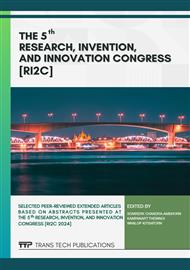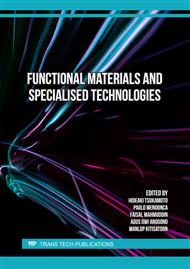p.3
p.11
p.17
p.23
p.33
p.39
p.47
p.55
Biodiesel Preparation from Roselle Seeds by Ultrasonic Cavitation
Abstract:
In this study, we conducted experiments to investigate the use of ultrasonic-assisted alkali-catalyzed transesterification for converting oil extracted from Roselle seed into biodiesel. Our goal was to evaluate how the production yield, and fluid properties of the biodiesel are affected by different operating conditions. Study scopes include the impact of mixing power, time, and volume of reactants. Our findings indicate that the ultrasonic-assisted process is consistently more effective than conventional mixing during the reaction stage. Our results show that the optimal power for ultrasonic production of biodiesel is 150 watts for 30 minutes, resulting in a production yield exceeding 95%. The viscosity and density of the product meet biodiesel standards. Additionally, when the ultrasonic-assisted process is used, glycerin can be removed more easily.
Info:
Periodical:
Pages:
11-16
DOI:
Citation:
Online since:
December 2024
Authors:
Keywords:
Price:
Сopyright:
© 2024 Trans Tech Publications Ltd. All Rights Reserved
Share:
Citation:



